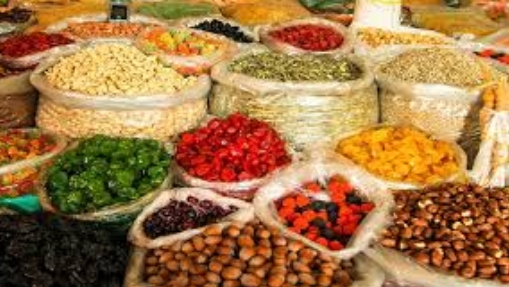
support@yorubalibrary.com
+2348073529208, 07038599574

Food preservation is a crucial aspect of Yoruba culture, ensuring that food remains safe and nutritious for consumption over time. The Yoruba people of Nigeria have developed various traditional methods of food preservation that reflect their resourcefulness and deep understanding of their environment. These methods have been passed down through generations, combining practical techniques with cultural practices.
Importance of Food Preservation
Food preservation plays a significant role in Yoruba society for several reasons:
• Sustenance: It ensures a steady food supply, especially during off-seasons or times of scarcity.
• Economic Stability: Preserved food can be stored and sold over time, providing economic benefits.
• Cultural Practices: Many preservation methods are tied to cultural rituals and traditions, reinforcing community bonds and heritage.
Traditional Yoruba Food Preservation Methods
1. Smoking
Smoking is one of the oldest and most common methods of food preservation among the Yoruba.
• Fish and Meat: Fish and meat are often smoked to extend their shelf life. The process involves cleaning the food, salting it, and then placing it over a fire where the smoke helps to dehydrate and preserve it.
• Benefits: Smoking imparts a distinct flavor to the food while preventing microbial growth and spoilage.
2. Drying
Drying is another widely used preservation method, relying on the sun and air to remove moisture from food.
• Grains and Seeds: Grains such as maize, millet, and beans are spread out in the sun to dry. This method reduces moisture content, making them less susceptible to mold and pests.
• Vegetables and Fruits: Leafy vegetables like bitter leaf and fruits like peppers are also dried to preserve them. Dried vegetables are often rehydrated before use in cooking.
3. Fermentation
Fermentation is a process that uses natural microorganisms to convert sugars and starches into alcohol or acids, preserving food and enhancing its nutritional value.
• Locust Beans: Fermented locust beans, known as iru or ogiri, are a staple in Yoruba cuisine. They are rich in protein and add a unique flavor to soups and stews.
• Cassava: Cassava is fermented to produce gari, a popular food item. The fermentation process helps to remove toxins and improve the shelf life of cassava.
4. Salting
Salting is used to preserve a variety of foods by drawing out moisture and creating an environment hostile to bacteria.
• Fish and Meat: In addition to smoking, fish and meat are often salted before being dried or smoked. This double preservation method ensures longer storage life.
• Vegetables: Some vegetables are salted and then sun-dried, enhancing their flavor and shelf life.
5. Underground Storage
Underground storage is a traditional method used to preserve tubers and root crops.
• Yams and Potatoes: Tubers such as yams and sweet potatoes are stored in cool, dry pits dug into the ground. This method helps to maintain the freshness of the tubers for extended periods.
• Preservation: The storage pits are lined with straw or leaves to prevent direct contact with soil, reducing spoilage.
Modern Adaptations and Relevance
While traditional methods remain important, modern technology has also influenced food preservation practices among the Yoruba.
• Refrigeration: Refrigerators and freezers are now commonly used in urban areas, complementing traditional methods.
• Canning and Bottling: These methods are increasingly used to preserve vegetables, fruits, and sauces, combining traditional recipes with modern preservation techniques.
• Sustainability: There is a growing interest in sustainable preservation practices, blending traditional knowledge with modern innovations to reduce waste and enhance food security.
Cultural Significance
Food preservation methods are deeply embedded in Yoruba culture, reflecting the community's ingenuity and connection to their environment.
• Rituals and Festivals: Certain preserved foods are central to Yoruba rituals and festivals, symbolizing abundance and continuity.
• Knowledge Transfer: The skills and knowledge of food preservation are passed down through generations, preserving not just the food but also cultural heritage and traditions.
Conclusion
Yoruba food preservation methods showcase a rich blend of tradition, resourcefulness, and cultural significance. From smoking and drying to fermentation and underground storage, these techniques ensure food security and maintain the nutritional value of food. As modern adaptations emerge, these traditional methods continue to play a vital role in preserving the culinary heritage of the Yoruba people.

Learn about the Yoruba concept of Ìwà Pẹ̀lẹ́ (good…

Learn special praises for Divine Being and Creator…